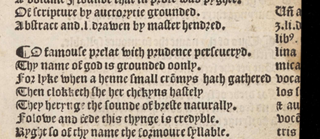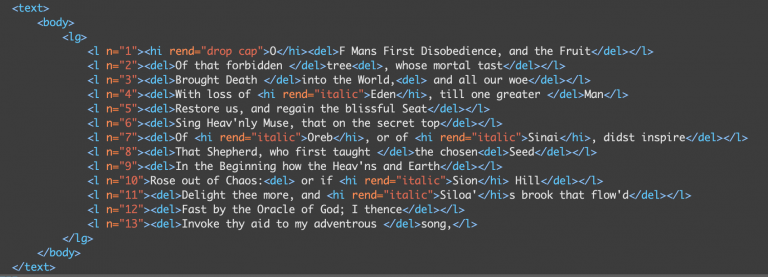Under the auspices of the German Studies Library Group and in association with the British Library, for the fourth time a Lecture in memory of Graham Nattrass (1940–2012) will be delivered on Tuesday, 20 September 2022 at the British Library, St Pancras, London. Graham Nattrass was Chair of the German Studies Library Group from 2003 till …
Tag: Reformation
Reformation Pamphlets Launch
On 29 October 2021, there will be a festive in-person launch of the ‘Passional Christi und Antichristi’, edited by Edmund Wareham. In June, there was already a launch of the online edition, 500 years and three weeks after the first edition of the pamphlet came out in Wittenberg. The paper version, part of the Taylor …
UNIQ+ Week 3: Beginnings
Week III marked something of a beginning. To characterize the third of a six-week long internship as a ‘beginning’ moment seems, of course, somewhat absurd. But it was indeed a pivotal instance: it was the moment we encountered the complete sammelband for the first time, the point at which we decided upon our own independent …
UNIQ+ Week 2: Learning to encode using TEI
UNIQ+ is a series of research internships designed to give excellent experience to students from under-represented backgrounds to enrich future applications for postgraduate study or graduate employment. For the History of The Book, we are particularly looking at enhancing digital research skills and exploring books as cultural objects. These skills will then be used for …
Buying and Reading Anti-Papal Polemic
Some remarks on the reception of the Antithesis figurata vitae Christi et Antichristi and the Passional Christi und Antichristi. Revised version of the address given by Ulrich Bubenheimer during the launch of the new edition An effective method for researching the reception of a 16th-century edition is the so-called Exemplarforschung, i.e. recording as many surviving …
500 Years in the Making: Editing Luther’s De Libertate Christiana
Madeleine Ahern The Taylor Institution Library’s Latin copy of Martin Luther’s 1520 work On Christian Freedom (De Libertate Christiana) sits in the Special Collections storeroom on a rolling stack among an impressive selection of early modern printed texts from the Reformation. The text is identifiable by its shelfmark ARCH. 8o.G.1521.10 and its brown leather re-bound exterior with …
eLeUTHERia – Luther’s ‚Freiheitsschrift‘ as a Publishing Phenomenon
by Maximilian Krümpelmann Luther Demands ‘Freedom’ When Luther stumbled upon the word ‘eleutheria’ in October 1517 – Greek for ‘freedom’ or ‘liberty’ – he changed his name from ‘Luder’ to ‘Luther’.[1] This is more than a pun: the change anticipates the central role that the concept of ‘freedom’ would play in his writing and thinking, …





